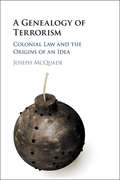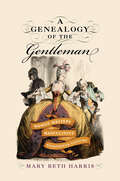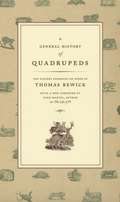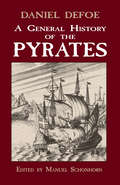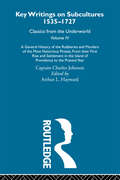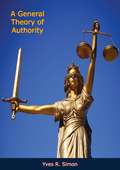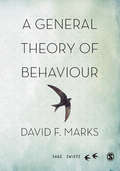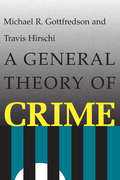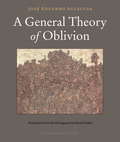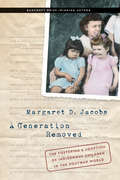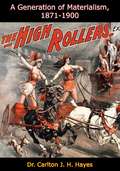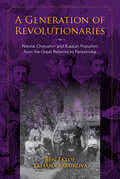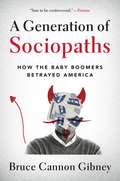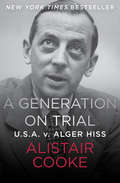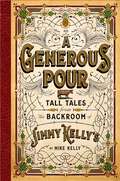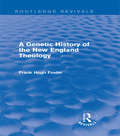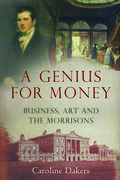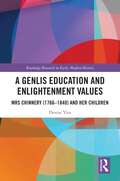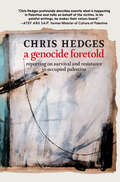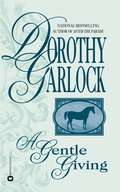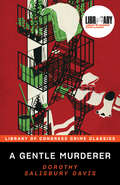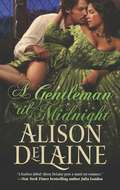- Table View
- List View
A Genealogy of Terrorism: Colonial Law and the Origins of an Idea
by Joseph McQuadeUsing India as a case study, Joseph McQuade demonstrates how the modern concept of terrorism was shaped by colonial emergency laws dating back into the nineteenth and early twentieth centuries. Beginning with the 'thugs', 'pirates', and 'fanatics' of the nineteenth century, McQuade traces the emerging and novel legal category of 'the terrorist' in early twentieth-century colonial law, ending with an examination of the first international law to target global terrorism in the 1930s. Drawing on a wide range of archival research and a detailed empirical study of evolving emergency laws in British India, he argues that the idea of terrorism emerged as a deliberate strategy by officials seeking to depoliticize the actions of anti-colonial revolutionaries, and that many of the ideas embedded in this colonial legislation continue to shape contemporary understandings of terrorism today.
A Genealogy of the Gentleman: Women Writers and Masculinity in the Eighteenth Century (EARLY MODERN FEMINISMS)
by Mary Beth HarrisA Genealogy of the Gentleman argues that eighteenth-century women writers made key interventions in modern ideals of masculinity and authorship through their narrative constructions of the gentleman. It challenges two latent critical assumptions: first, that the gentleman’s masculinity is normative, private, and therefore oppositional to concepts of performance; and second, that women writers, from their disadvantaged position within a patriarchal society, had no real means of influencing dominant structures of masculinity. By placing writers such as Mary Davys, Eliza Haywood, Charlotte Lennox, Elizabeth Inchbald, and Mary Robinson in dialogue with canonical representatives of the gentleman author—Joseph Addison and Richard Steele, David Hume, Samuel Johnson, and Samuel Richardson—Mary Beth Harris shows how these women carved out a space for their literary authority not by overtly opposing their male critics and society’s patriarchal structure, but by rewriting the persona of the gentleman as a figure whose very desirability and appeal were dependent on women’s influence. Ultimately, this project considers the import of these women writers’ legacy, both progressive and conservative, on hegemonic standards of masculinity that persist to this day.
A General History of Quadrupeds: The Figures Engraved on Wood by Thomas Bewick
by Thomas BewickIn the late eighteenth century, the British took greater interest than ever before in observing and recording all aspects of the natural world. Travelers and colonists returning from far-flung lands provided dazzling accounts of such exotic creatures as elephants, baboons, and kangaroos. The engraver Thomas Bewick (1753–1828) harnessed this newfound interest by assembling the most comprehensive illustrated guide to nature of his day.A General History of Quadrupeds, first published in 1790, showcases Bewick’s groundbreaking engraving techniques that allowed text and images to be published on the same page. From anteaters to zebras, armadillos to wolverines, this delightful volume features engravings of over four hundred animals alongside descriptions of their characteristics as scientifically understood at the time. Quadrupeds reaffirms Bewick’s place in history as an incomparable illustrator, one whose influence on natural history and book printing still endures today.
A General History of the Pyrates
by Daniel DefoeImmensely readable history by the author of Robinson Crusoe incorporates the author's celebrated flair for journalistic detail, and represents the major source of information about piracy in the early 18th century. Defoe recounts the daring and bloody deeds of such outlaws as Edward Teach (alias Blackbeard), Captain Kidd, Mary Read, Anne Bonny, many others.
A General History of the Robberies and Murders of the Most Notorious Pirates - from their first rise and settlement in the Island of Providence to the present year: Previously published 1726 and 1927 (Key Writings On Subcultures, 1535-1727 Ser. #Vol. 3)
by Captain Charles JohnsonA General History of the Pirates has long been a classic of seafaring literature and was inspiration to both Robert Louis Stevenson and J.M. Barrie. Nothing is known about Captain Charles Johnson, and it is thought that the name may be assumed - there are even some who believe he may have been Daniel Defoe. All that can be stated with any certainty is that in 1724 a small octavo volume appeared that became so popular it grew through 4 editions over 2 years and is still famed today. Historians from both sides of the Atlantic have attested to the accuracy of the work's content. This is a reprint of the 1927 reissued 4th edition - enhanced by the Arthur L. Hayward's editorial touches.
A General Theory of Authority
by Yves R. SimonA General Theory of Authority was first printed in 1962 and is a classic treatment of authority and its relation to justice, life, truth, and order. In recent years authority has been seen as an enemy of freedom, autonomy, and development. In this book the renowned philosopher Yves R. Simon, himself a passionate proponent of liberty, analyzes the idea of authority and defends it as an essential concomitant of liberty. Simon sees authority as the catalyst necessary to bring together the seemingly disparate demands of liberty on one hand and order on the other.Simon’s perceptive discussion of how authority differs from law enables him to highlight the effective and personal role that authority can play in the life of the individual and for the good of the community.Professor Yves R. Simon was an esteemed philosopher and teacher at several American universities, including Notre Dame and the University of Chicago. He published numerous books and articles, many of which remain as classic pieces of political and social philosophy. Professor Simon died in 1961.
A General Theory of Behaviour (SAGE Swifts)
by David F. MarksPsychologists like to claim that Psychology is a science, yet, until now, the discipline has lacked any real scientific laws, has had no overarching scientific paradigm and has been blighted by poor replicability of research, all of which have dogged the discipline. Attempts to place Psychology under a single scientific umbrella, e.g. Behaviourism, Cognitivism, Biological Science, Social Science or Human Science, have all failed for a host of reasons. This unique book presents a single paradigm for all of Psychology within a framework of Natural Science. For example, it employs as a model an organising principle known in another scientific discipline for over a century, the principle of Homeostasis. Findings across the entire discipline including perception, learning, emotion, stress, addiction, well-being and consciousness are all shown to be consistent with a new paradigm based on this, and other principles drawn from natural science.
A General Theory of Crime
by Michael R. Gottfredson Travis HirschiBy articulating a general theory of crime and related behavior, the authors present a new and comprehensive statement of what the criminological enterprise should be about. They argue that prevalent academic criminology--whether sociological, psychological, biological, or economic--has been unable to provide believable explanations of criminal behavior. The long-discarded classical tradition in criminology was based on choice and free will, and saw crime as the natural consequence of unrestrained human tendencies to seek pleasure and to avoid pain. It concerned itself with the nature of crime and paid little attention to the criminal. The scientific, or disciplinary, tradition is based on causation and determinism, and has dominated twentieth-century criminology. It concerns itself with the nature of the criminal and pays little attention to the crime itself. Though the two traditions are considered incompatible, this book brings classical and modern criminology together by requiring that their conceptions be consistent with each other and with the results of research. The authors explore the essential nature of crime, finding that scientific and popular conceptions of crime are misleading, and they assess the truth of disciplinary claims about crime, concluding that such claims are contrary to the nature of crime and, interestingly enough, to the data produced by the disciplines themselves. They then put forward their own theory of crime, which asserts that the essential element of criminality is the absence of self-control. Persons with high self-control consider the long-term consequences of their behavior; those with low self-control do not. Such control is learned, usually early in life, and once learned, is highly resistant to change. In the remainder of the book, the authors apply their theory to the persistent problems of criminology. Why are men, adolescents, and minorities more likely than their counterparts to commit criminal acts? What is the role of the school in the causation of delinquincy? To what extent could crime be reduced by providing meaningful work? Why do some societies have much lower crime rates than others? Does white-collar crime require its own theory? Is there such a thing as organized crime? In all cases, the theory forces fundamental reconsideration of the conventional wisdom of academicians and criminal justice practitioners. The authors conclude by exploring the implications of the theory for the future study and control of crime.
A General Theory of Fluid Mechanics
by Peiqing LiuThis book provides a general introduction to fluid mechanics in the form of biographies and popular science. Based on the author’s extensive teaching experience, it combines natural science and human history, knowledge inheritance and cognition law to replace abstract concepts of fluid mechanics with intuitive and understandable physical concepts. In seven chapters, it describes the development of fluid mechanics, aerodynamics, hydrodynamics, computational fluid dynamics, experimental fluid dynamics, wind tunnel and water tunnel equipment, the mystery of flight and aerodynamic principles, and leading figures in fluid mechanics in order to spark beginners’ interest and allow them to gain a comprehensive understanding of the field’s development. It also provides a list of references for further study.
A General Theory of Oblivion
by Jose Eduardo Agualusa Daniel HahnAs the country goes through various political upheavals from colony to socialist republic to civil war to peace and capitalism, the world outside seeps into Ludo's life through snippets on the radio, voices from next door, glimpses of someone peeing on a balcony, or a man fleeing his pursuers. A General Theory of Oblivion is a perfectly crafted, wild patchwork of a novel, playing on a love of storytelling and fable.From the Trade Paperback edition.
A Generation Divided: German Children and the Berlin Wall
by Thomas A. DaveyAn inquiry into the lives of children of similar, if not identical, historical an cultural heritage who today find themselves in radically opposed ideological worlds, regarding one another across the concrete manifestation of their considerable differences, the Berlin Wall. Under these circumstances, what are the significant factors that contribute to the development in children of feelings of loyalty to or alienation from their nation? How do they view not only themselves, but the "other" Germans as well? How do they come to terms, emotionally and cognitively, with a unique, frequently painful, and frustrating reality? What are the lessons intended for them by their societies, and what lessons do they in fact learn? How do these children persist as Germans while at the same time becoming something else -- "communists? or "capitalists"?Thomas Davey conducted interviews with children both sides of the Wall, participated in their daily lives, collected their drawings, talked with their teachers and families and grew aware of just how attentive children can be to moral and political subtleties of national life. The result is a revealing and dramatic portrait of a young generation coming to terms with complex national and historical circumstances of the two cites of East and West Berlin.
A Generation Removed: The Fostering and Adoption of Indigenous Children in the Postwar World
by Margaret D. JacobsOn June 25, 2013, the U.S. Supreme Court heard the case Adoptive Couple vs. Baby Girl, which pitted adoptive parents Matt and Melanie Capobianco against baby Veronica’s biological father, Dusten Brown, a citizen of the Cherokee Nation of Oklahoma. Veronica’s biological mother had relinquished her for adoption to the Capobiancos without Brown’s consent. Although Brown regained custody of his daughter using the Indian Child Welfare Act (ICWA) of 1978, the Supreme Court ruled in favor of the Capobiancos, rejecting the purpose of the ICWA and ignoring the long history of removing Indigenous children from their families. In A Generation Removed, a powerful blend of history and family stories, award-winning historian Margaret D. Jacobs examines how government authorities in the post–World War II era removed thousands of American Indian children from their families and placed them in non-Indian foster or adoptive families. By the late 1960s an estimated 25 to 35 percent of Indian children had been separated from their families. Jacobs also reveals the global dimensions of the phenomenon: These practices undermined Indigenous families and their communities in Canada and Australia as well. Jacobs recounts both the trauma and resilience of Indigenous families as they struggled to reclaim the care of their children, leading to the ICWA in the United States and to national investigations, landmark apologies, and redress in Australia and Canada.
A Generation of Materialism, 1871-1900 [Revised Edition]
by Dr Carlton J. H. HayesTo a generation that has experienced two great World Wars, the closing quarter of the Nineteenth Century is bound, in retrospect, to appear in the light of a golden age. It was an era of peace in Europe, an age of great technological advance, a period of progress, of growing tolerance, of spreading liberalism. Or so at least it seemed at the time and so it appears to many even now. And yet, when viewed historically, when examined critically, the late nineteenth century emerges rather as an age of materialism, of smug self-confidence, of uncritical assurance. It was, as Professor Hayes sets forth, in many senses the seed-time of disaster, the prelude to an era of conflict and disillusionment. […]In A Generation of Materialism, 1871-1900, Professor Hayes has gotten down to fundamentals. He has stripped away many of the easy misconceptions and has re-examined some of the basic assumptions and tenets of the modern world. If history is indeed but the prologue, no intelligent person can afford, amid the storm and stress of the contemporary world, to overlook this fascinating and stimulating reappraisal of the generation that bore our own. (William L. Langer, Introduction)“THE IMPARTIALITY and fair-mindedness which the historian must set as his goal are severely tested in writing about a period so near to us as this. Professor Hayes passes the test admirably. He has, of course, feelings that are engaged, and these he very straightforwardly makes clear in his preface...he has packed into a single volume an immense amount of information and good sense.”—CRANE BRINTON“A brilliant, illuminating account of an epoch which is considered as a climax of enlightenment and a source of disillusionment. A reappraisal that must be read.”—Social Studies“This stimulating volume is ‘living history,’ written by a man who has keenly observed and sincerely interpreted his age.”—FRANKLIN C. PALM, The American Historical Review
A Generation of Revolutionaries: Nikolai Charushin and Russian Populism from the Great Reforms to Perestroika
by Ben Eklof Tatiana Saburova“Anyone interested in digging deeper into some of the less-examined facets of late imperial and early Soviet Russia will be well rewarded.” —American Historical ReviewNikolai Charushin’s memoirs of his experience as a member of the revolutionary populist movement in Russia are familiar to historians, but A Generation of Revolutionaries provides a broader and more engaging look at the lives and relationships beyond these memoirs. It shows how, after years of incarceration, Charushin and friends thrived in Siberian exile, raising children and contributing to science and culture there.While Charushin’s memoirs end with his return to European Russia, this sweeping biography follows this group as they engaged in Russia’s fin de siècle society, took part in the 1917 revolution, and struggled in its aftermath. A Generation of Revolutionaries provides vibrant and deeply personal insights into the turbulent history of Russia from the Great Reforms to the era of Stalinism and beyond. In doing so, it tells the story of a remarkable circle of friends whose lives balanced love, family, and career with exile, imprisonment, and revolution.
A Generation of Sociopaths: How the Baby Boomers Betrayed America
by Bruce Cannon Gibney"Sure to be controversial."---Fortune magazineWhat happens when a society is run by people who are anti-social? Welcome to Baby Boomer America. In A Generation of Sociopaths, Bruce Cannon Gibney shows how America was hijacked by the Boomers, a generation whose reckless self-indulgence degraded the foundations of American prosperity. A former partner in a leading venture capital firm, Gibney examines the disastrous policies of the most powerful generation in modern history, showing how the Boomers ruthlessly enriched themselves at the expense of future generations. Acting without empathy, prudence, or respect for facts--acting, in other words, as sociopaths--the Boomers turned American dynamism into stagnation, inequality, and bipartisan fiasco. The Boomers have set a time bomb for the 2030s, when damage to Social Security, public finances, and the environment will become catastrophic and possibly irreversible--and when, not coincidentally, Boomers will be dying off. Gibney, whose 2011 essay "What Happened to the Future?" transfixed the investment world, argues that younger generations have a fleeting window to hold the Boomers accountable and begin restoring America. Distilling deep research into a witty, colorful indictment of the Boomers and an urgent defense of the once-unquestioned value of society, A Generation of Sociopaths is poised to become one of the most controversial books of the year.
A Generation on Trial: U.S.A. v. Alger Hiss
by Alistair CookeThe story of Whittaker Chambers, HUAC, and the case that defined the McCarthy era, as reported by one of the twentieth century&’s most respected journalists. In August 1948, a former Communist Party member named Whittaker Chambers testified before the House Un-American Activities Committee that a secret cell of Communists had infiltrated Franklin D. Roosevelt&’s New Deal administration. Chief among the conspirators, according to Chambers, was Alger Hiss, a former government attorney and State Department official who had taken part in the Yalta Conference and been instrumental in the creation of the United Nations. Hiss&’s categorical denial of the charges, which led Chambers to produce evidence linking both men to Soviet espionage, quickly escalated into one of the most divisive episodes in American history and ignited the widespread fear and paranoia of the McCarthy era. As the US correspondent for the Manchester Guardian, Alistair Cooke reported extensively on the Hiss affair. In an atmosphere that he memorably compares to that of a seventeenth-century religious war, Cooke maintained a clear head and his signature intellectual rigor. A Generation on Trial, which begins with a brilliantly succinct summary of the case—&“We are about to look at the trials of a man who was judged in one decade for what he was said to have done in another&”—is both a fascinating historical document and a stirring example of journalistic integrity.
A Generous Pour: Tall Tales from the Backroom of Jimmy Kelly's
by Mike KellyThe story of Jimmy Kelly&’s Steak House, Nashville's oldest fine restaurant, and the family who started it—of stills, saloons, and speakeasies, and of a family who was tough and resourceful, who lost everything, and picked themselves up and started again. When young James Kelly fled the Irish Famine in 1848, he arrived in America with a roll of copper tubing under his shirt. To make whiskey, of course. And he did—in the green rolling hills of Middle Tennessee. Later his son John would open a saloon, initiating the family custom of serving up &“a great steak and a generous pour of whiskey&” that continues to this day. Readers will delight in tales of bootleggers and rumrunners, saloons and speakeasies, of hard workers with strong family values, the old genteel Nashville and the new Nashville recording industry, and the mysterious difference between whiskey and bourbon. There are stories about Jack Daniel, Roy Rogers and Dale Evans (and even Trigger), Al Capone, Bob Dylan, Grantland Rice, John Jay Hooker Sr., and local characters only a Nashvillian could love. The story of the Kelly family in Tennessee takes readers from the Civil War to Nashville&’s postwar boom and the turn of a new century: the Roaring 20s that followed the first World War, the temperance movement that led to Prohibition, and the speakeasy solution that led honest Kelly men to defy a patently bad law as they built a family legacy of beloved restaurants in Nashville. Mike Kelly—James&’s great-grandson—has written a fine and rollicking tale of a most interesting time in American history. His affection for his family and his community shows on every page.
A Genetic History of New England Theology (Routledge Revivals)
by Frank Hugh FosterFirst published in 1907, this text provides a scientific treatment of New England theology and American dogmatic history. Frank Hugh Foster analyses the eighteenth-century rise of the school of New England theology, which became the dominant school of thought in New England congregationalism and, as argued by Foster, a ‘world phenomenon’. The chapters arise from readings of the various distinguished views of such contemporaries as Jonathan Edwards, Joseph Bellamy and Samuel Hopkins, placing them within the historical and theological context in which they developed. A fascinating and detailed title, this reissue will be of value to students of theology and Church history with a particular interest in the development of American religious thought.
A Genius for Money
by Caroline DakersThis is the spectacular rags-to-riches story of James Morrison (1789-1857), who began life humbly but through hard work and entrepreneurial brilliance acquired a fortune unequalled in nineteenth-century England. Using the extensive Morrison archive, Caroline Dakers presents the first substantial biography of the richest commoner in England, recounting the details of Morrison's personal life while also placing him in the Victorian age of enterprise that made his success possible.An affectionate husband and father of ten, Morrison made his first fortune in textiles, then a second in international finance. He invested in North American railways, was involved in global trade from Canton to Valparaiso, created hundreds of jobs, and relished the challenges of "the science of business". His success enabled him to acquire land, houses, and works of art on a scale to rival the grandest of aristocrats.
A Genlis Education and Enlightenment Values: Mrs Chinnery (1766–1840) and her Children
by Denise YimOffering a unique approach to the study of late eighteenth-century/early nineteenth-century education, this book explores the life and motivations of a strong-minded, self-educated and enlightened English gentlewoman, Mrs Margaret Chinnery, who put Madame de Genlis’s educational ideas into practice with marked success. Beginning with a brief outline of Margaret’s own childhood and her adolescent efforts to educate herself, drawing largely on readings recommended by Genlis, the book continues through to her marriage, her children’s early and adolescent education, and ends with the benefits that the children gained in adulthood from their education. This book is not limited to a biography, as each section on the daily business of education is interspersed with a discussion and comparison of contemporary education authors and other writers, the values they espoused, which ones Margaret followed and why. It also draws on valuable surviving Chinnery documents which trace the Chinnery children’s education, Margaret’s correspondence with Genlis and a comprehensive catalogue of the Chinnery library. The book offers a unique opportunity to follow a real family from cradle to grave, and provides an intriguing illustration, at an individual level, of a female-crafted education embedded in Enlightenment values. This book will be of great interest to postgraduate students and scholars researching the history and philosophy of education as well as women in the Enlightenment.
A Genocide Foretold: Reporting on Survival and Resistance in Occupied Palestine
by Chris HedgesWith intimate and harrowing portraits of the human consequences of oppression, occupation, and violence experienced in Palestine today, Pulitzer-prize-winning journalist Chris Hedges issues a call to action urging us to bear witness and engage with the ongoing humanitarian crisis.Hedges wrote the first section of the book when he was in Ramallah in July 2024, and he draws from his experience doing extensive reporting from the Middle East, including Gaza, for the New York Times.A Genocide Foretold confronts the stark realities of life under siege in Gaza and the heroic effort ordinary Palestinians are waging to resist and survive. Weaving together personal stories, historical context, and unflinching journalism, Chris Hedges provides an intimate portrait of systemic oppression, occupation, and violence. The book includes chapters on:What life is like in Gaza City and Ramallah in the midst of approaching bombs and gunfire.The history of the dispossession of Palestinians of their land in relation to the ideology of Zionism.A portrait of Amr, a 17-year-old highschool student who is forced to evacuate his village with his family.Psychoanalysis of the state of permanent war that has led to the destruction of hospitals, telecommunications centers, governmental buildings, roads, homes universities, schools, and libraries and archaeological and heritage sites in Gaza.The ways in which the collective retribution against innocents is a familiar tactic employed by colonial rulers.A heartbreaking final chapter called &“Letter to the Children of Gaza.&”Hedges, the Pulitzer Prize–winning former Middle East Bureau Chief for The New York Times, is an Arabic speaker who spent seven years covering the conflict. He wrote the first section of the book when he was in Ramallah in July 2024. A Pulitzer-Prize winning journalist, he is also the author of two bestselling books, War is a Force that Gives us Meaning and The Greatest Evil is War. In A Genocide Foretold he writes with an emotional depth that can only be achieved from spending many years on the ground in Gaza and the West Bank. A Genocide Foretold is a call to action, urging us to bear witness and engage with the ongoing humanitarian crisis.
A Gentle Fragrance
by Pamela GriffinSarah rescues Bill from the ocean and her dad leads him to the saviour. Bill then takes Sarah to New York to start a new life.
A Gentle Giving
by Dorothy GarlockA New York Times extended list bestselling author, Dorothy Garlock has won acclaim and awards for her unique ability to convey both the romance and reality of frontier America. Here she presents one of her most beloved stories, a tale of two outcasts who must learn to take a leap of faith--and take a chance on love. She had narrowly escaped the lynch mob that unjustly hanged her foster father. Now lonely Willa Hammer has nothing left--except her dog Buddy, her faith in herself, and the protection of a strange, secretive family. She joins their wagon train, headed west . . . never realizing that she is traveling to the wilds of the Big Horn Mountains, where a run-down, intrigue-ridden ranch and the arms of an untamed, hardened cowboy await her. Haunted by his past, Smith Bowman has the power to infuriate Willa and hurt her. But a love greater than the Big Horn can be theirs if they can surrender to the gentle giving of their hearts.
A Gentle Murderer (Library of Congress Crime Classics)
by Dorothy Salisbury DavisHailed by critic Anthony Boucher as "one of the best detective stories of modern times," this classic tale by Grand Master Dorothy Salisbury Davis combines suspense and psychological insight as a priest and a police detective both race to find a self-confessed murderer before he is compelled to kill again."Bless me, Father, for I have sinned …"Father Duffy has heard many confessions through the years, but none quite so disturbing as the one he's heard tonight. A young man enters the confessional just as the priest is readying to leave for the evening; he's distraught that he has killed a woman in a paroxysm of uncontrollable rage—and he's still wielding the hammer he used to do the deed. Father Duffy tries to convince the young man to turn himself in to the police, but he flees just as suddenly as he had appeared.When the priest learns the next day that an escort was found bludgeoned to death on the East Side, he sets out to search for the troubled confessor. Meanwhile, Sergeant Ben Goldsmith of the NYPD is drawn deep into the official investigation. Neither is aware that the other is searching for the murderer, and both hope against hope that they're able to find the killer before he strikes again."A simmering tour de force of detection from both ends of the trail."— Kirkus Reviews
A Gentleman 'Til Midnight
by Alison DelaineThe complication they don't want... Lady Katherine Kinloch survived captivity once. Now the notorious captain of her own ship, she refuses to let anyone jeopardize her hard-won freedom. But on a voyage to England to fight for her family's endangered estate, Katherine is thrown off course when she unknowingly rescues celebrated naval captain James Warre...a man who stands for everything she despises. The passion they desperately need... Haunted by regret for his role in her dark past, James is determined to be more than the cold, calculating officer Katherine expects. Her seduction is his obsession, but his pride hangs in the balance if he gives in to temptation. And hiding beneath the scorching attraction between them lies a secret that could force the two apart for good.
